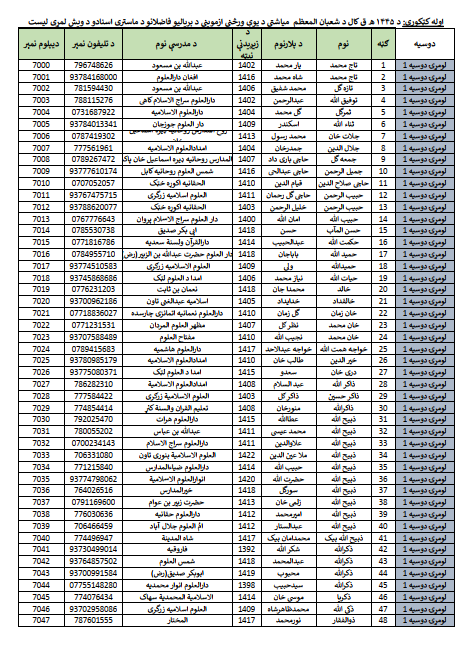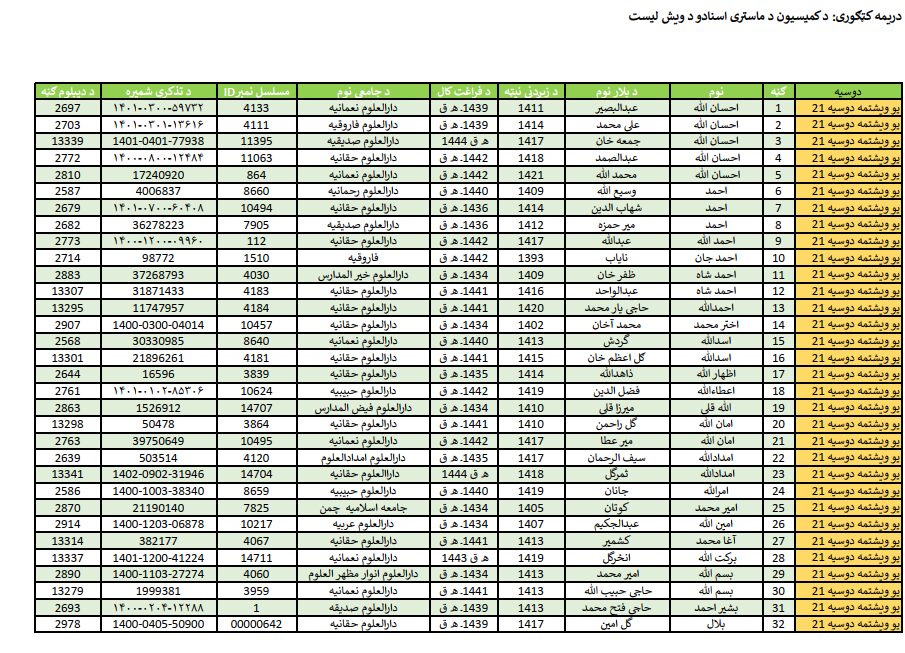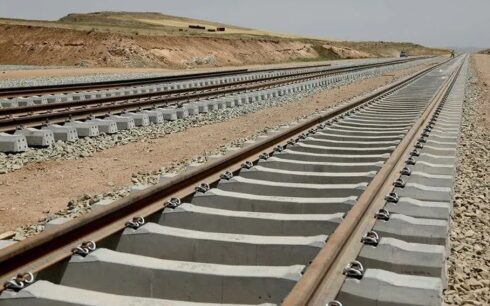Taliban have awarded master’s degrees to 2,519 graduates from religious and jihadist schools in Afghanistan and Pakistan, according to documents obtained by Amu TV.
Among the recipients are graduates from dozens of Pakistani madrassas, including Darul Uloom Haqqania, a seminary known for producing senior Taliban leaders.
The documents indicate that between 2022 and 2023, the Taliban issued master’s degrees in three phases to students from various religious institutions, including Noor-ul-Madaris Al-Faruqia in Quetta, Darul Uloom Tajabad in Peshawar, Imdad-ul-Uloom Al-Islamiya in Peshawar, Al-Omaria in Pakistan, and Siraj-ul-Uloom in Kahi.
Most degrees awarded to Haqqania graduates
The largest share of degrees went to students from three branches of Darul Uloom Haqqania, a seminary in Akora Khattak, Khyber Pakhtunkhwa, Pakistan, long associated with the Taliban’s leadership.
Breakdown of degrees issued:
Phase One (2023):
Darul Uloom Haqqania, Akora Khattak: 80+ master’s degrees
Darul Uloom Haqqania (branch): 20+ master’s degrees
Haqqania: 10+ master’s degrees
Phase Two (2022):
Darul Uloom Haqqania: 20 master’s degrees
Haqqania: 8 master’s degrees
Phase Three (2022):
Darul Uloom Haqqania: 150 master’s degrees
The seminary has played a central role in shaping the Taliban’s leadership, with many of the group’s senior figures—including its founder, Mullah Mohammad Omar—being former students.
‘Taliban see Haqqania as sacred’
Religious scholars and analysts say the Taliban place immense value on Haqqania and its graduates.
“The Taliban view Darul Uloom Haqqania as a sacred institution,” said Momin Zia Badakhshi, a religious affairs expert. “They treat its graduates as if they had studied at Oxford. This madrassa holds extraordinary significance for the Taliban because many of their top leaders, from Mullah Omar to others, are alumni of this institution.”

Master’s degrees were also awarded to graduates of jihadist schools within Afghanistan, including Jamiat Jihadi Laghman and Jihadi Madrassa Kandahar.
Some university professors have criticized the move, arguing that Taliban-run madrassas lack academic credibility and that issuing master’s degrees from such institutions undermines Afghanistan’s higher education system.
“This is a major blow to Afghanistan’s educational system,” said one university professor. “The Taliban’s madrassas do not meet scientific or academic standards, and these degrees have no real educational value.”
A human rights researcher who has studied Taliban madrassas described their curriculum as outdated and disconnected from modern subjects.
“The Taliban’s madrassa curriculum is severely outdated and disconnected from contemporary sciences,” said Hadi Farzam, a human rights researcher. “Students at these schools have no access to modern education, and the degrees the Taliban issue cannot be compared to those from public or private universities.”

In January 2025, Taliban administered competency tests to professors in the Islamic Culture and Sharia faculties at public universities across Afghanistan.
Sources told Amu TV that after the exams, the Taliban dismissed several university professors, replacing them with graduates from their religious schools.

Some academics warn that integrating jihadist madrassa graduates into the country’s higher education system could turn Afghanistan into a hub of extremism, with far-reaching consequences for both the country and the region.





